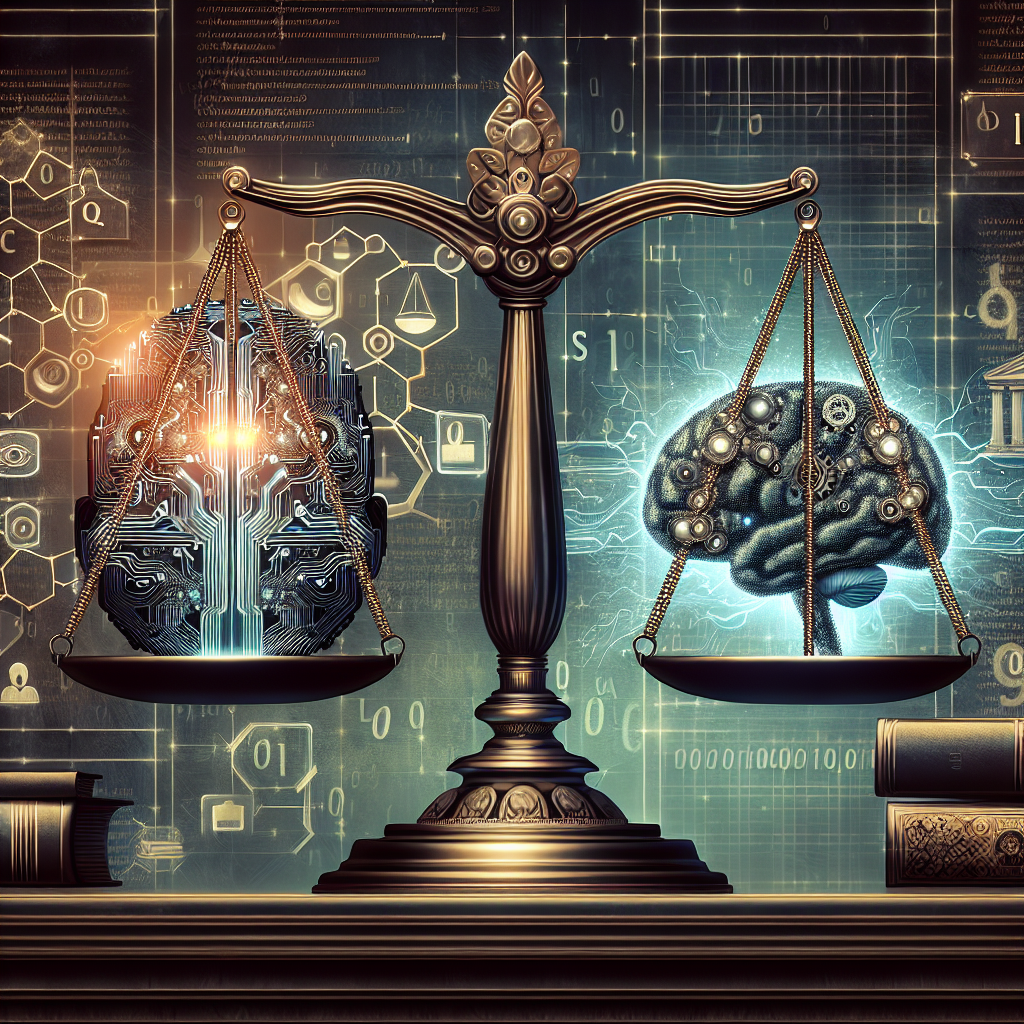Artificial Intelligence (AI) has revolutionized many industries, including the legal field. The use of AI in legal practice has increased efficiency, accuracy, and accessibility of legal services. However, the integration of AI into the legal profession also raises important ethical and professional responsibility issues that must be addressed.
The Impact of AI on Legal Ethics
1. Bias and Fairness
One of the main concerns with the use of AI in the legal field is the potential for bias in decision-making. AI algorithms are only as good as the data they are trained on, and if that data is biased, the AI system will produce biased outcomes. This can have serious implications for fairness in the legal system, as biased decisions can perpetuate existing inequalities and injustices.
To address this issue, legal professionals must be vigilant in monitoring and auditing AI systems to ensure that they are producing fair and unbiased outcomes. This may involve regularly updating training data, testing for bias, and implementing safeguards to prevent discriminatory outcomes.
2. Accountability
Another ethical concern with AI in the legal field is the issue of accountability. Who is responsible if an AI system makes a mistake or produces an incorrect outcome? Is it the developer of the AI system, the legal professional who used the system, or both?
Legal professionals must be transparent about the use of AI in their practice and clearly communicate to clients the limitations and risks associated with AI systems. They must also be prepared to take responsibility for the outcomes of using AI in legal decision-making.
3. Confidentiality and Privacy
AI systems often require access to large amounts of data in order to make accurate predictions or decisions. This raises concerns about the confidentiality and privacy of client information. Legal professionals must ensure that AI systems are secure and comply with all relevant data protection laws and regulations.
Additionally, legal professionals must be transparent with clients about the use of AI in their practice and obtain informed consent before using AI systems to process client data.
Professional Responsibility
In addition to ethical concerns, the integration of AI into the legal profession also raises important issues related to professional responsibility. Legal professionals have a duty to provide competent and diligent representation to their clients, and the use of AI may impact their ability to fulfill this duty.
1. Competence
Legal professionals must ensure that they are competent in the use of AI systems and understand the limitations and risks associated with these systems. This may require ongoing training and education to stay current with developments in AI technology.
2. Supervision
Legal professionals who use AI systems in their practice must also ensure that these systems are used responsibly and ethically. This may involve implementing policies and procedures for the use of AI, as well as providing supervision and oversight to ensure that AI systems are being used appropriately.
3. Communication
Legal professionals must also communicate with clients about the use of AI in their practice and ensure that clients understand the implications of using AI systems in legal decision-making. This may involve explaining the limitations and risks associated with AI systems, as well as obtaining informed consent from clients before using AI in their representation.
Frequently Asked Questions
Q: How can legal professionals ensure that AI systems are fair and unbiased?
A: Legal professionals can ensure that AI systems are fair and unbiased by regularly monitoring and auditing these systems, updating training data to reduce bias, and implementing safeguards to prevent discriminatory outcomes.
Q: Who is responsible if an AI system makes a mistake or produces an incorrect outcome?
A: The responsibility for mistakes made by AI systems in the legal field may fall on both the developer of the AI system and the legal professional who used the system. Legal professionals must be transparent about the use of AI in their practice and take responsibility for the outcomes of using AI in legal decision-making.
Q: What are some best practices for legal professionals using AI in their practice?
A: Some best practices for legal professionals using AI in their practice include ensuring competence in the use of AI systems, providing supervision and oversight to ensure responsible use of AI, and communicating with clients about the implications of using AI in legal decision-making.
In conclusion, the integration of AI into the legal profession has the potential to revolutionize legal practice and improve access to justice. However, legal professionals must be vigilant in addressing ethical and professional responsibility issues associated with the use of AI in order to ensure fair and unbiased outcomes for their clients. By staying informed and proactive in addressing these issues, legal professionals can harness the power of AI to enhance their practice while upholding their ethical obligations to clients and the legal system.

